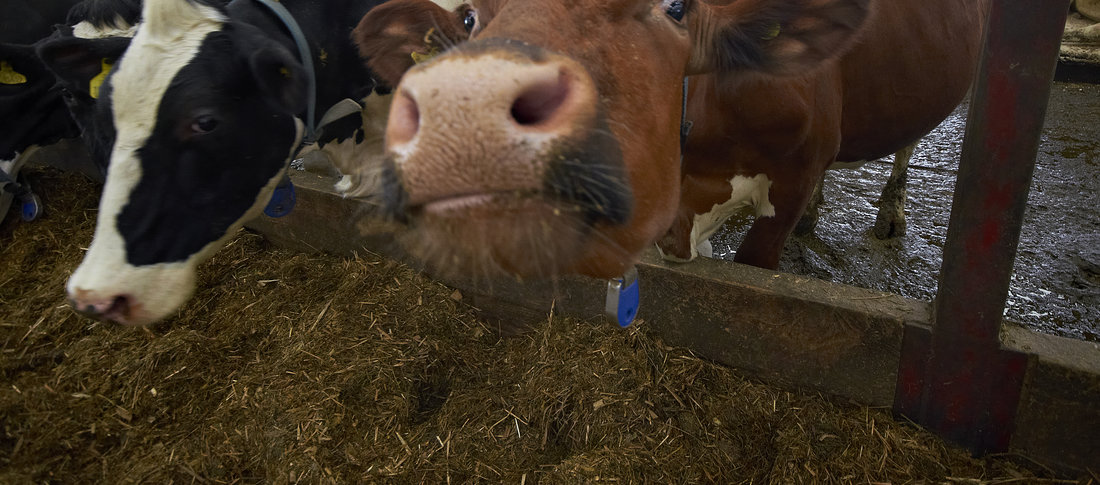Another day, another dairy giant announces a reduction in farmgate milk prices. 2018 has been a tough year for dairy farmers so far. Between January and March, almost every major dairy processor dropped farmgate prices, including Muller, First Milk, Arla, Wyke Farms and Barber’s.
The reason for the slump in farmgate prices is universal falls in average UK dairy commodity prices. But the downward pressure on milk prices has also highlighted an alarming lack of clarity in dairy market data.
Dairy remains a stable market
According to Defra the UK ‘all milk’ average price for February fell by 2.4% from January to 29.64ppl. Yet while it’s easy to panic when you see farmgate prices falling, the bigger picture of the dairy market is one of stability. In fact the UK five-year rolling average milk price was 28.12ppl in January, up marginally from the same month in 2017 when it was 28.02ppl. Meanwhile the UK ‘all milk’ average price in January 2018 was up 13.5% from January 2017.
The question, then, is what can be done to halt the current downward pressure on farmgate prices and sustain the long-term stability of the dairy market?
Better market data, better risk management
It’s dairy producers that most acutely feel the effects of a slump in the dairy market. Yet without access to accurate market data they cannot identify market risks or take steps to avoid them. That’s according to NFU Cymru, who are urging the government to ensure that dairy market data are accurately collected, audited and published to give dairy farmers the right signals as to what’s happening in the market - both in terms of price and demand.
The current lack of clarity is illustrated by the fact that Defra and AHDB Dairy disagree on recent milk production levels. Defra’s monthly volumes are significantly below the daily delivery figures collected by AHDB. And that’s a problem. Accurate figures on price, volume and demand are crucial for farmers to make confident business decisions on future production. How can the market function efficiently in the absence of reliable data?
Keep it clean...
£40 million was lost in milk payments in 2015 due to milk that failed to meet buyers’ requirements on hygiene. An easy way to avoid falling foul of Bactoscan readings is an effective pre- and post-milking cleaning protocol. This will remove bacteria and milk residues from internal surfaces and help to control pathogens. The AHDB has detailed advice here.
Optimise your production to get the best price possible
What if there was an online tool that automatically calculated how you could improve the milk price on your current contract by making slight changes to your production methods? Well, there is - thanks to AHDB Dairy. You can compare prices across a range of different contracts and see how changes to variables such as herd size and calving patterns could impact your business.
Cater to your buyer
Another way to enhance your milk price is to cater to your buyer’s milk composition preferences. Most pricing schedules provide incentives for higher ratios of certain constituents, such as protein or fat. Adjusting the composition of your milk accordingly can help to improve the ppl price you receive - though this must be weighed up against the costs of tweaking the composition of your milk.
One cost-effective way to boost yields and increase the fat content of your milk is to feed your dairy herd an appropriate fat supplement. Volac Wilmar has a range of uniquely-formulated rumen-protected fat supplements that contain high concentrations of beneficial fatty acids such as oleic acid, palmitic acid and linolenic acid. Using a correct fat supplement can bring multiple benefits to your herd including:
- increased milk production
- increased milk fat %
- improved fertility
And there’s plenty of science to back it up. Find out more at Megalac.com
You may also be interested in:
>> Feeding dairy cows fat - is it cost-effective?
>> EBook: Right fat, right time
>> Maintaining energy levels at grass to retain fertility
>> How robotic milking can help dairy farmers boost yields
